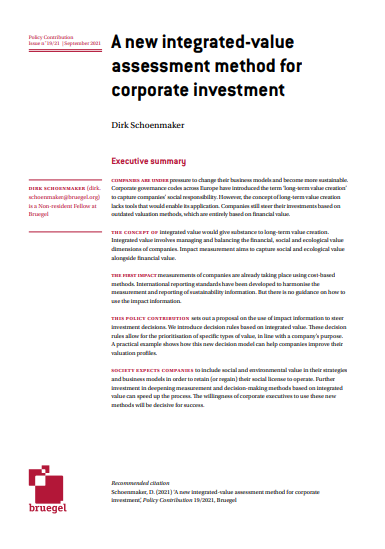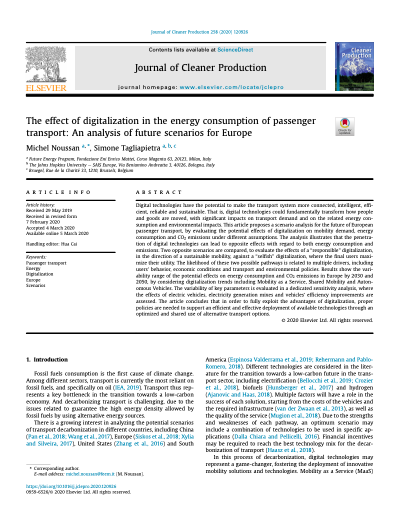Policy Contribution
A new integrated-value assessment method for corporate investment
To contribute more to the green transition, companies should start to make investment decisions based on integrated-value assessment, weighing up the environmental and social impacts alongside the financial returns.
Companies are under pressure to change their business models and become more sustainable. Corporate governance codes across Europe have introduced the term ‘long-term value creation’ to capture companies’ social responsibility. However, the concept of long-term value creation lacks tools that would enable its application. Companies still steer their investments based on outdated valuation methods, which are entirely based on financial value.
The concept of integrated value would give substance to long-term value creation. Integrated value involves managing and balancing the financial, social and ecological value dimensions of companies. Impact measurement aims to capture social and ecological value alongside financial value.
The first impact measurements of companies are already taking place using cost-based methods. International reporting standards have been developed to harmonise the measurement and reporting of sustainability information. But there is no guidance on how to use the impact information.
This policy contribution sets out a proposal on the use of impact information to steer investment decisions. We introduce decision rules based on integrated value. These decision rules allow for the prioritisation of specific types of value, in line with a company’s purpose. A practical example shows how this new decision model can help companies improve their valuation profiles.
Society expects companies to include social and environmental value in their strategies and business models in order to retain (or regain) their social license to operate. Further investment in deepening measurement and decision-making methods based on integrated value can speed up the process. The willingness of corporate executives to use these new methods will be decisive for success.
Recommended citation
Schoenmaker, D. (2021) ‘A new integrated-value assessment method for corporate investment’, Policy Contribution 19/2021, Bruegel






